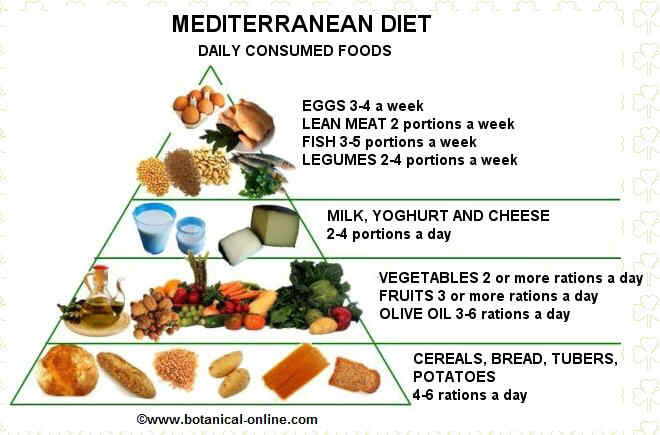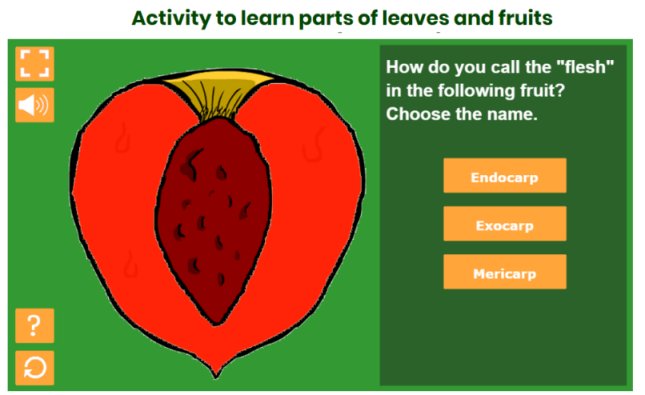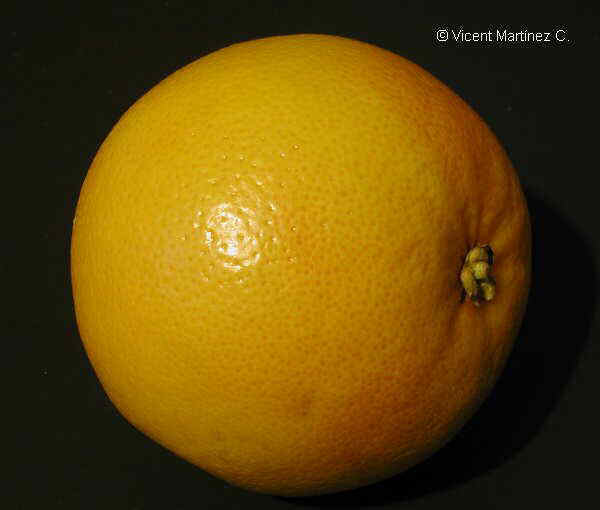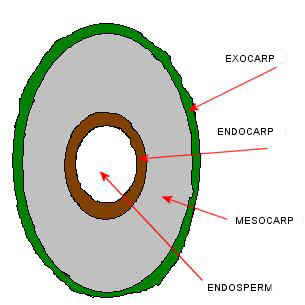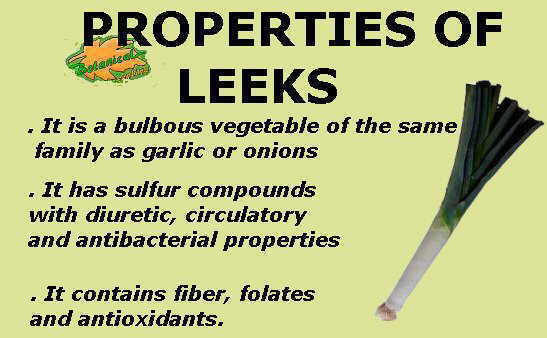Contents
Disadvantages of transgenics
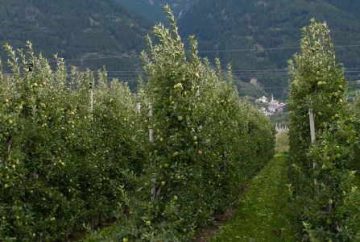
Transgenic organisms have many detractors mainly for the following reasons on the list, which are developed point by point below:
- Bad for environmental health
- Loss of biodiversity and gastronomic culture
- Economic powers
- Legislation problems, both to regulate their cultivation, and to investigate
- Human health security
Why are transgenics harmful to the environment?
Genetic engineering could achieve plants more resistant to drought, with pesticides incorporated in their genetic material, or with lower nutrient requirements, which would be an advantage by saving natural and economic resources (water, nutrients, pesticides, …). However, GM foods have been used to produce plants very resistant to herbicides and insecticides, so that the environment is sprayed with huge amounts of these products, knowing that GM plants will resist it, but without thinking of consequences for the ecosystem (insects and other animals, air pollution, water and other crops, bioaccumulation, …).
Although the ideal would be to produce GMO plants that do not need the use of pesticides, in order to save the environmental impact of these products, the truth is that the crops grown require the use of agrochemicals, always marketed by the same companies that have the patent on the seeds.
Decrease in the diversity of local crops
The cultivation of certain plants is detrimental to the use of other seeds, contributing to food globalization and the loss of gastronomic culture.
Economic powers and GM foods
One of the arguments discussed in the issue of transgenic food is the economic powers or private companies that monopolize the GM market.
Transgenic seeds are patented and their purchase benefits a few private companies. Although on this argument, it should be mentioned that the seeds obtained in a traditional way can also be registered. The same companies that sell GMOs also produce organic and generally have a monopoly on all types of crops, pesticides and seeds. However, if the climate changes in the future and only transgenic plants resist environmental conditions, it can become an even more profitable business for private patent companies, which would hold the key to world food. Only 6 companies control the global market for transgenic seeds.
Transgender legislation issues
The problems of legislation of transgenic seeds can be divided into two points: on their crop regulation and research on their safety.
GM crops can contaminate other crops, which, according to the law, cease to be owned by the farmer automatically to become the property of the company that registers them. Non-GMO growers are defenseless against this legislation.
On the other hand, the current legislation does not allow to freely investigate with GMO patented seeds without permission of the companies that patent it. These companies also have the authority to decide the duration and certain requirements of the studies. All of this makes it difficult to study freely about its repercussions on human health.
Proponents of this legislation argue that, as it is a patented product, it is logical that no public funds be allocated to research on plants that benefit private companies, which gives rise to the reflection on whether it is appropriate for private companies to patent food that can be planted and could have a fundamental role in feeding a large part of the world’s population in the future.
Safety of GMOs on human health
There are scientific studies that state that GM foods are not harmful to health, and experience tells us that these foods are nutritious, because thousands of animals and people are fed daily with these plants.
The problem lies in the lack of scientific studies free of conflicts of interest on transgenic foods. Most transgenic scientific studies are produced, or must be authorized, by the companies that own the patent, with the obvious conflict of interest that this entails.
In the absence of sufficient studies on the subject, the main reason why scientists and non-scientists do not support GMOs is the precautionary principle. The effect that transgenics can have on nature is unknown: animals, plants and microorganisms.
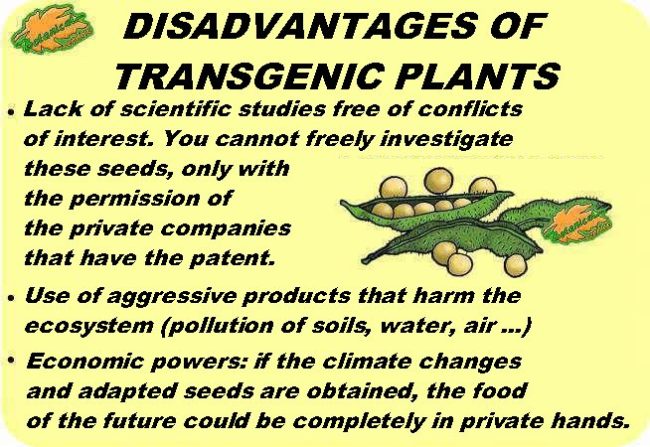
Is it harmful to eat foods with transgenic DNA?
All foods are made up of millions of cells, animals or plants, which contain fragments of genetic material or DNA. When any food is ingested, ingestion of the genetic material of the plants occurs. Theoretically, the ingestion of genetically modified DNA is not the main danger of transgenics because in the stomach and intestine, all genetic material is broken down by gastric juices and digestive enzymes, so that they lose their entire structure.
Most scientists agree that eating “genetic material modified by genetic engineering” (transgenic foods) is not dangerous, although others believe that better research should be done.
There are also studies, not expressly related to transgenics, that tell us that a very small part of the genetic material of the plants we consume could be in our blood and could give us information or interact, in some way, with our biology (mRNA). However, the information on this subject is very confusing and there is still much to investigate.
![]() More information on transgenics
More information on transgenics



